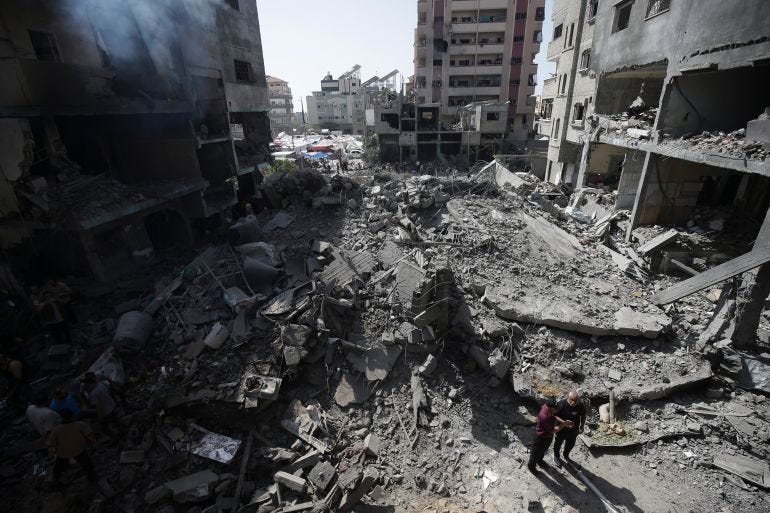India’s Military Support to Israel Is a Hideous Mistake
Iran’s Comparison of the Situation in Jammu and Kashmir With Gaza

It came as a disappointment that the Supreme Court bench led by Chief Justice DY Chandrachud dismissed a joint petition filed by a distinguished group of intellectuals that the supply of arms from India to the Israeli military during the Gaza war is in violation India’s obligations under international law coupled with Articles 14 and 21 read with 51(c) of the Constitution.
The petitioners pleaded that the court had on previous occasions held that India is under obligation to interpret domestic law in the light of the obligations under the conventions and treaties that it has both signed and ratified. However, the apex court took note that this is an issue of foreign policy. The government is off the hook.
But an even more explosive issue devolves upon the reports that pucca Indians or people of Indian origin have been recruited by the Israeli army to fight in the war. At a minimum, the government is obliged to ascertain from the Israeli government the veracity of such reports. It is a huge issue since over 40,000 Palestinians have been killed and nearly 100,000 injured in Israel’s military operations so far.
Doesn’t the government realise that this is adding to the growing perception internationally that the current government is “Islamophobic” and “anti-Muslim”? Governments come and go but such stigmas eventually become the burdens of history once the West Asian region's oligarchies disappear and get replaced by representative governments going forward.
Anyone who is a believer in the forces of history would sense that without a radical rethink of national policy, Israel faces a dismal future of strategic defeat. To be sure, the West Asian region is on the cusp of change. Last week, Saudi Arabia’s embassy in Damascus officially resumed its mission after a 12-year hiatus of wasted time as financier and mentor of the jihadi forces who spearheaded the Western project for regime change in Syria. The reintegration of Syria into the Arab world, the Saudi-Iranian rapprochement, the BRICS membership of Iran, the Persian Gulf countries and Egypt, the diminishing influence of the United States in the West Asian region, the isolation of Israel—these are emblematic of the winds of change sweeping the region.
In such a transformative period, how could India possibly cling to the world of yesterday with a regional policy anchored on its special relationship with Israel? On the one hand, we are moralising that “this is not an era of wars” while on the other hand, the government is giving robust support to Israel in its horrific war against the Palestinian people.
Again, the religious dimension to the fratricidal strife in Manipur is already drawing the attention of Christian countries, although this is the first time that the Meitei, who are predominantly Hindu, live mostly in and around the state’s capital city Imphal, and the Kuki—who are mainly Christian and inhabit the surrounding hills—clashed against each other… Many have pointed out that Prime Minister Narendra Modi is yet to visit the state or make a comprehensive statement. In a devastating article that neatly overlapped the high-profile visit of External Affairs Minister S Jaishankar to Germany, the Deutsche Welle—a national broadcasting station, by the way—continued that apart from the militarisation of that tiny state, the Indian government has no policy.
What do we do with such brutal criticism? We either stomach it when it originates from powerful Western countries such as Germany or the US (or the United Nations), or become hysterical when Iran compares the situation in Jammu and Kashmir with Gaza. Perhaps, India is the only country in the Global South which behaves so cynically. When the aristocrats in our political class wax eloquently that “India matters” as a world power, they overlook that we live in a veritable glass house in the age of the Internet in which information travels around the world in seconds. One can hear the derisive suppressed laughter in the Western world when we strut around on the global stage as “Vishwaguru” (meaning “world guru/teacher” from the Sanskrit विश्वगुरु).
Suffice to say, India’s policy during the past 11 months of the Gaza war has become a mystery wrapped in an enigma. The only plausible explanation is that Israelis who are adept at the art of political blackmail are exploiting the government’s Achilles’ heel, that is Haifa Port, which is in the eye of the storm in the region, to manipulate our foreign policy.



